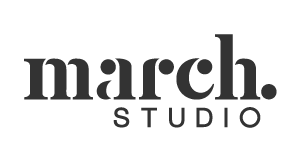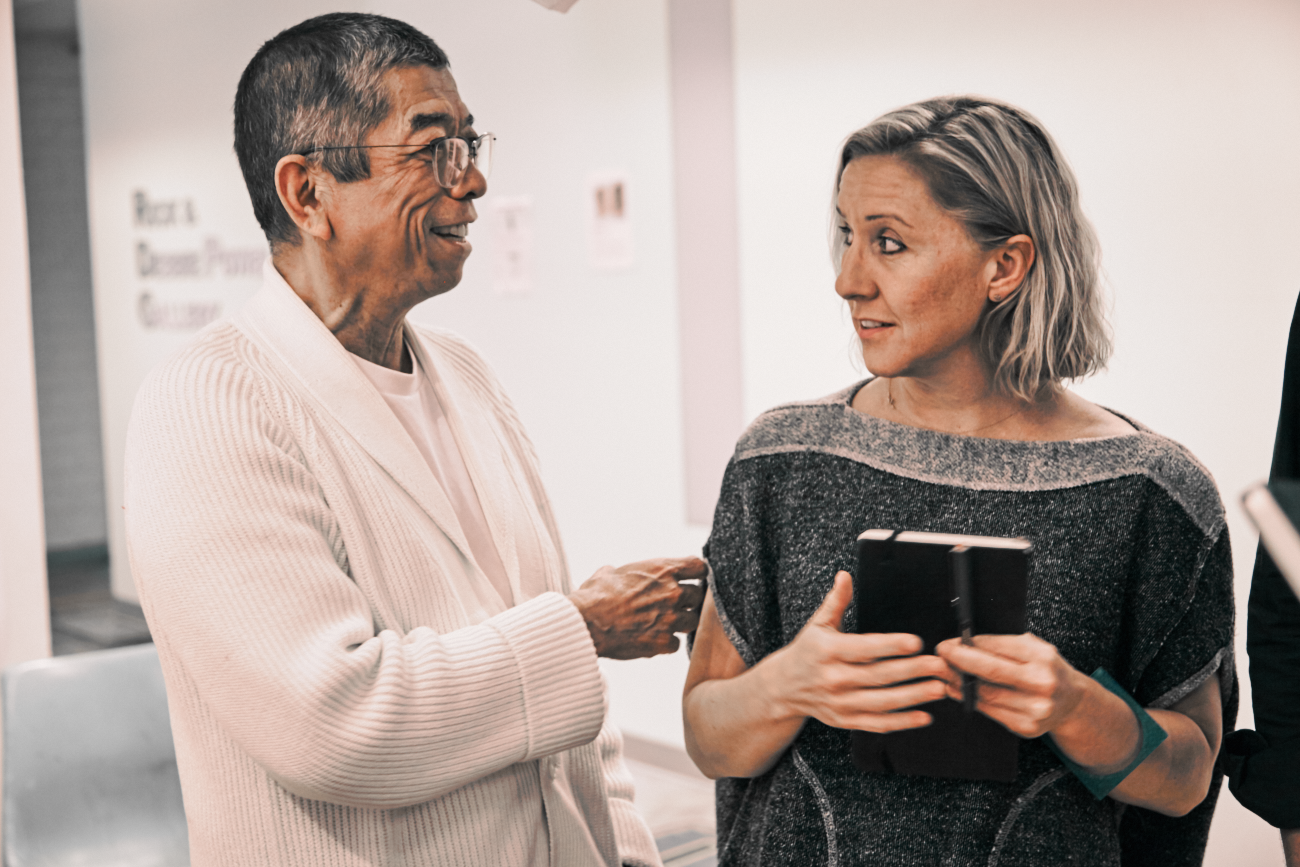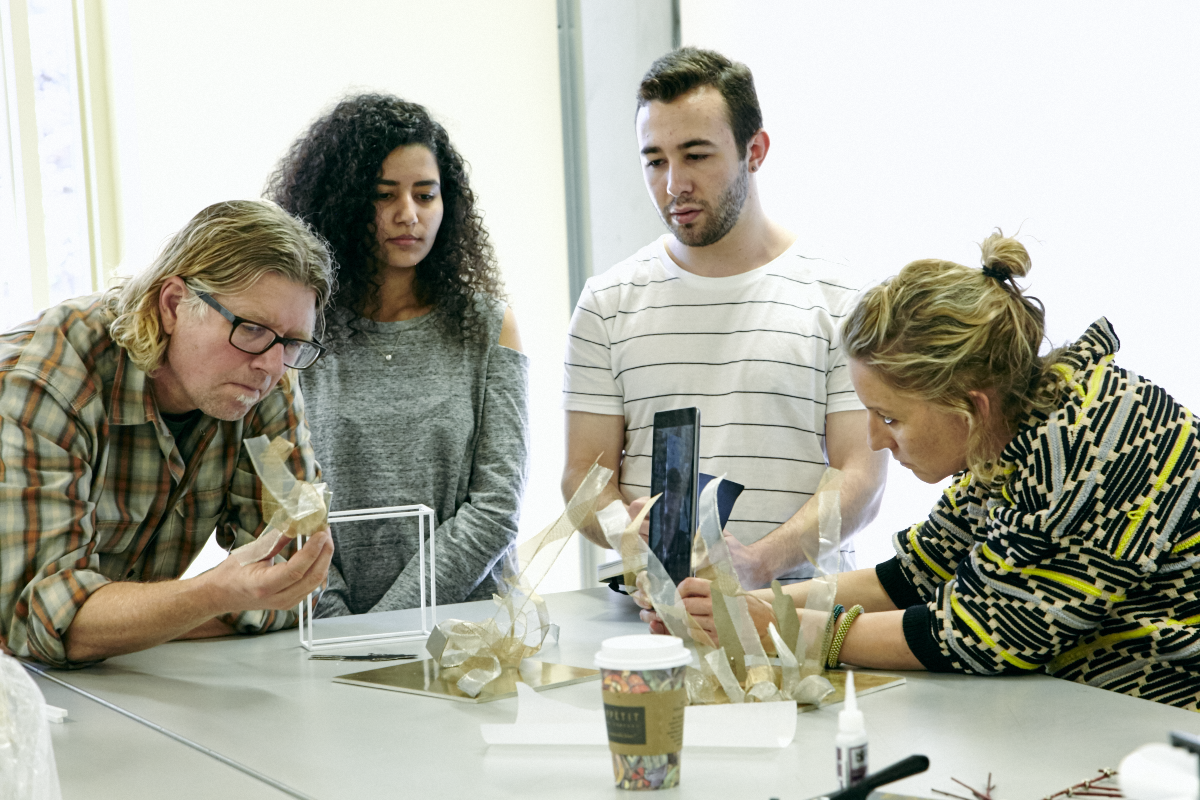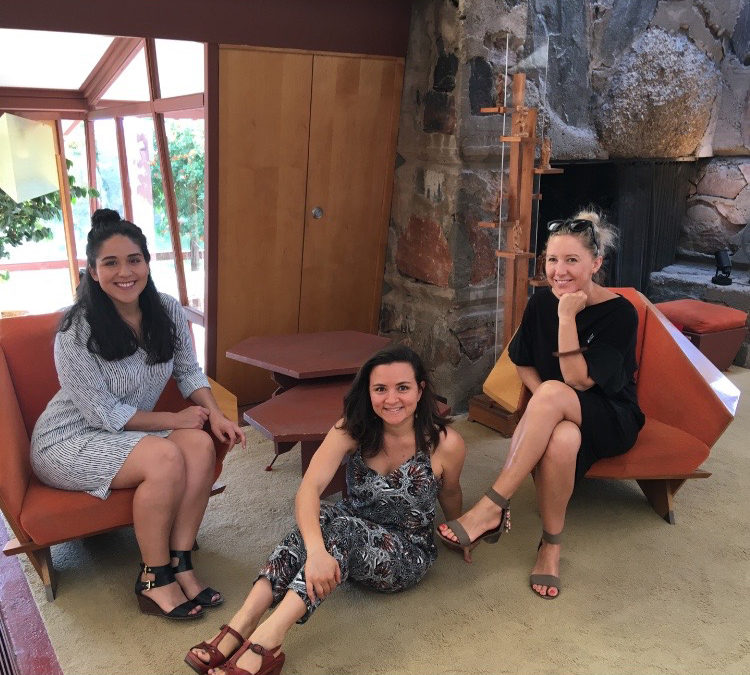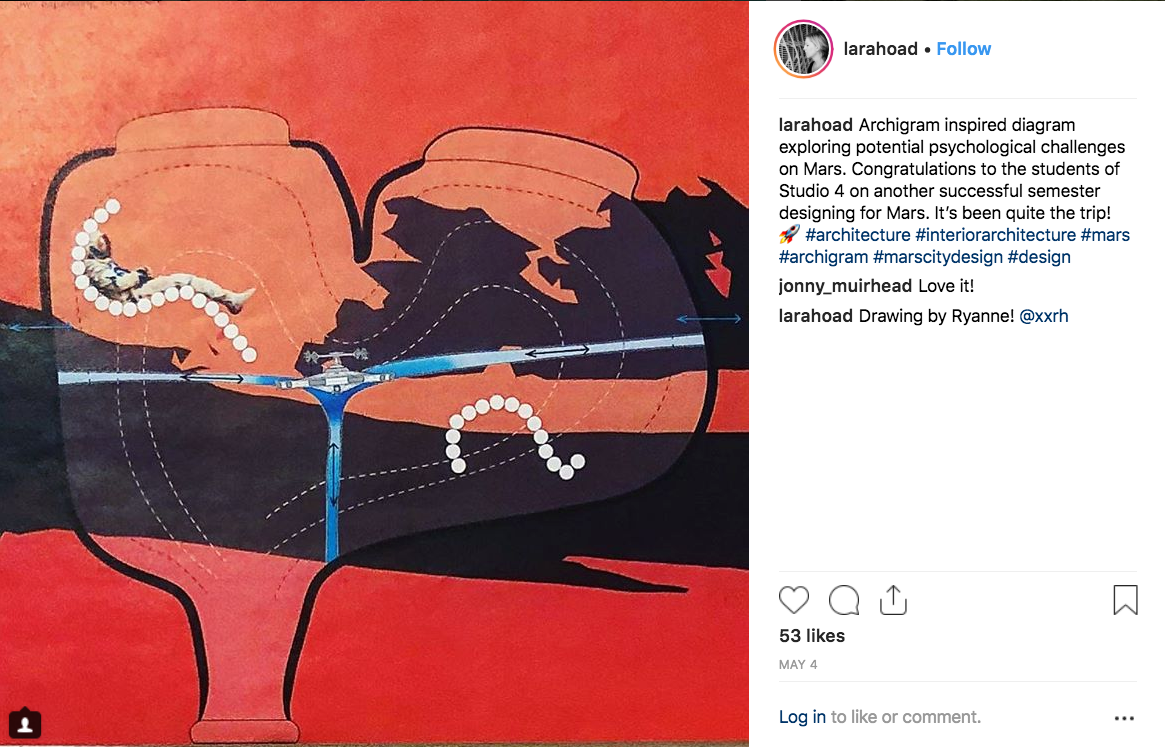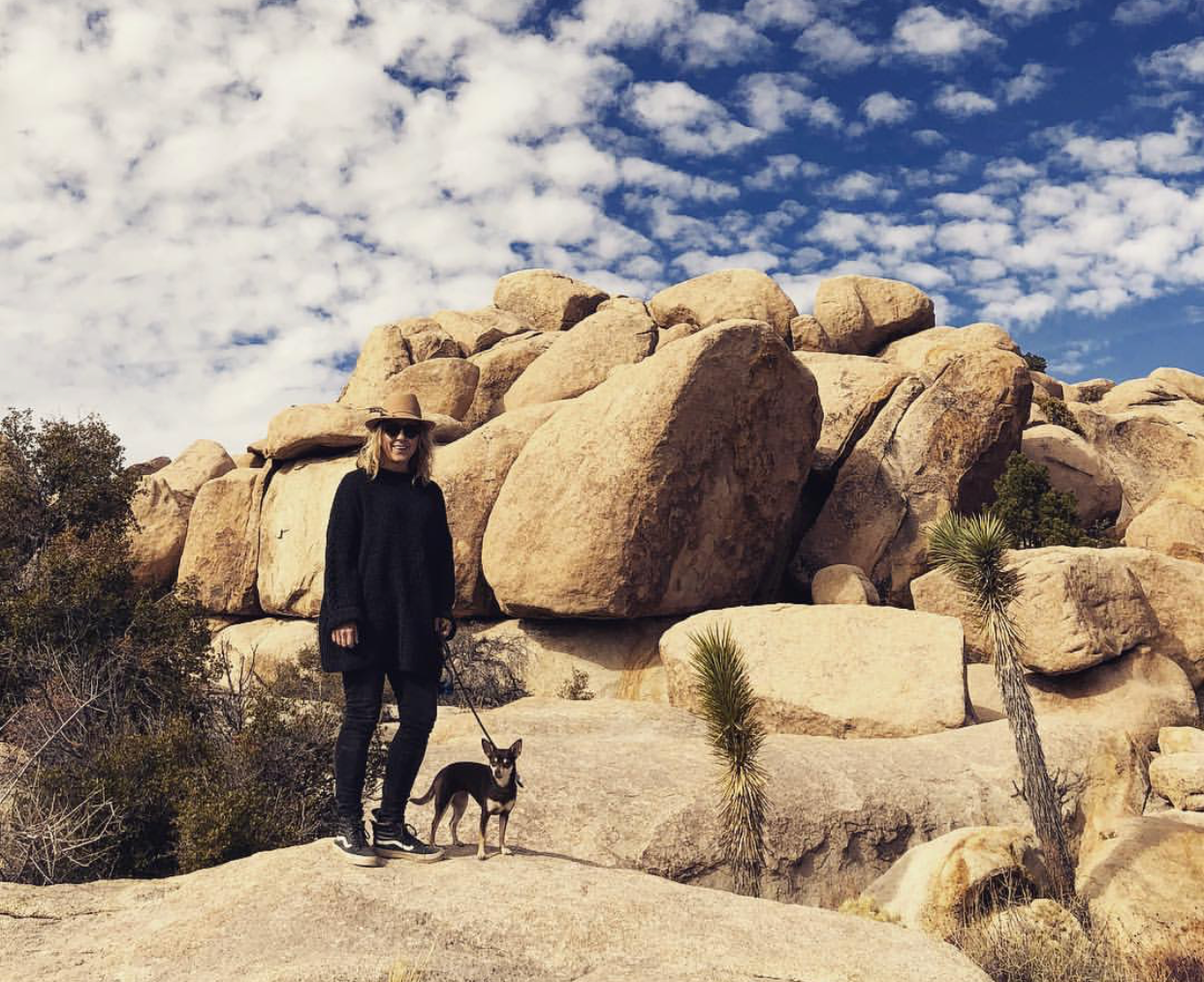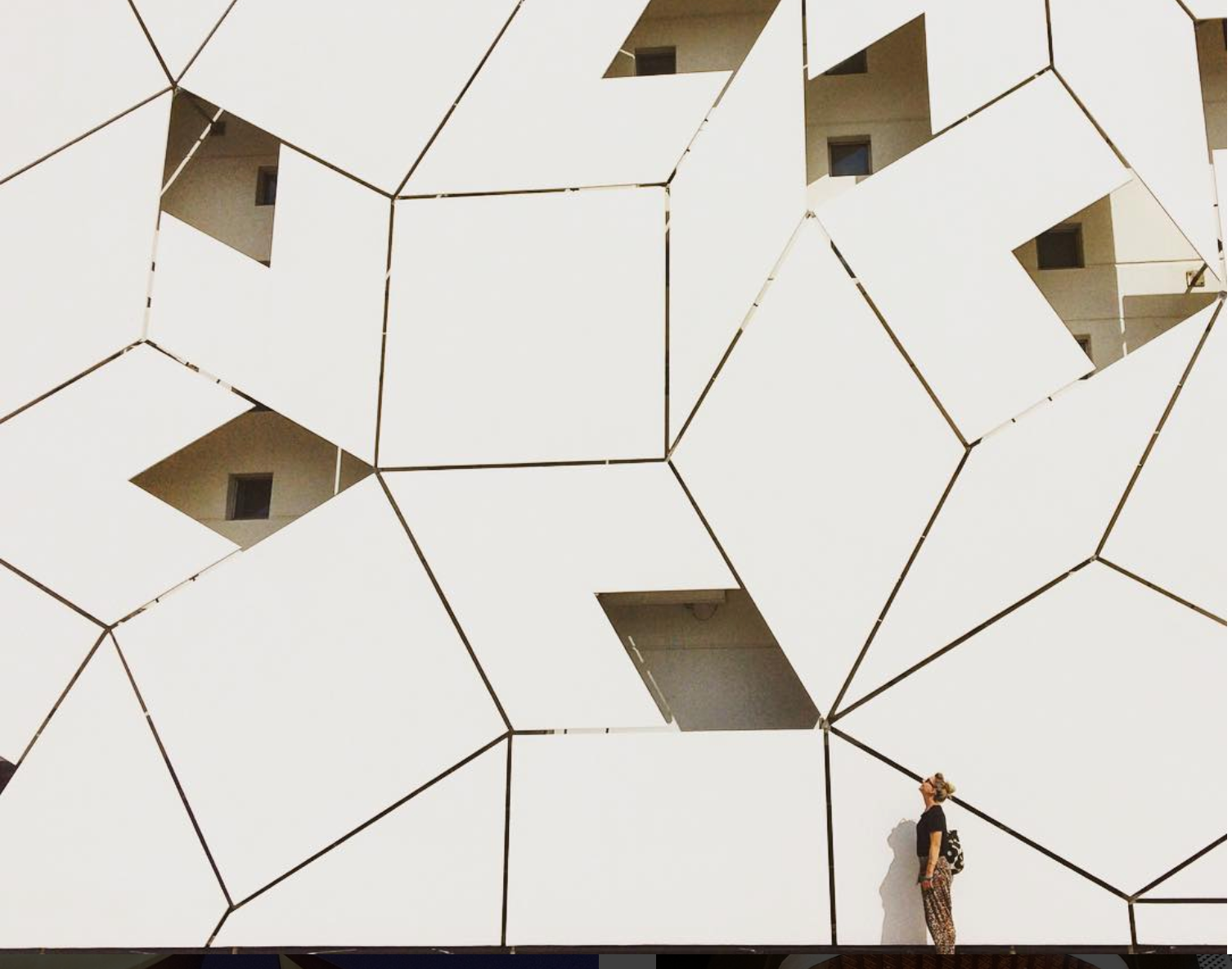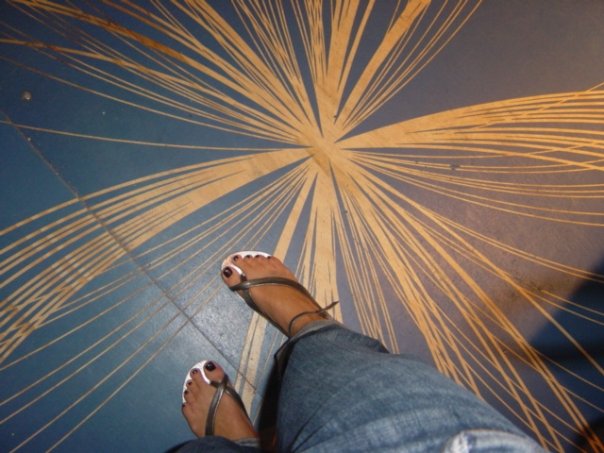This month we celebrate 15 years of Design Direction from our resident Brit, Lara Hoad. We took the opportunity to sit down (over tea, of course) and ask her about the shifts in design, teaching, and architecture she has seen—and what excites her about the next 15 years.
How did you come to Southern California?
It feels so long ago! I was finishing my Masters of Arts in Architecture at the Royal College of Art (RCA) in London and thinking about a place in the world where I could both practice architecture and have access to the mountains as I wanted to spend more time in nature. I had been to Los Angeles on a previous trip and was drawn to the futuristic, hyper-surreal nature of it, and so landed myself in Venice Beach, an eclectic creative community with access to all that Los Angeles and California has to offer.
“She showed us her RCA work and we were sold—beautiful, strategic, and innovative work.” -Sherry Hoffman, Co-founder March Studio
"I remember [her] arrival well... I found [her work] pretty exotic and different myself. [She] brought a fresh vision to the office, which made it even more special and exciting to work there." -Ben Gramann, Former March Studio Designer
What drew you to March Studio?
Kim Colin, of the firm Industrial Facility, was my branded architecture professor at the RCA and she recommended I meet with March Studio. She had graduated from Southern California Institute of Architecture (SCIArc) with Todd and was familiar with the branded architecture work that March Studio was doing. When I met with Todd and Sherry, I knew it was a good match. Like me, they had lived in other countries and traveled extensively and we shared the same curiosity about the world. They were thinking about the relationship between branding and architecture in a very similar way that I had been at the RCA. It was a meeting of the minds.
Todd and Sherry were also educators and having sat on juries both at the RCA and the Architectural Association (AA) in London, I knew that I wanted teaching to be part of my career going forward. March Studio's emphasis on teaching and practice was, and still is, very attractive to me. There is definitely a 'studio' feel to the way that we approach projects. It is inclusive and allows a certain degree of collaborative creativity which is reflected both in the unique process and the end product.
What has changed in Branded Architecture in the last 15 years?
Branding, in the field of architecture, was quite a rebellious subject matter when I first started out and other architects were quite dismissive of it, calling it too 'pop'. There is a more mainstream awareness of brand and its value in the profession now with clients like Atomic Burger, who fully understand the value of and importance of integrating the branding agency and the architect early in the process to realize a project that successfully and authentically reflects who they are spatially.
How does teaching affect your practice?
My teaching career has evolved over time to be one of the most rewarding and important parts of my life. Teaching provides a platform for architectural risk-taking and satisfies curiosity, being able to explore cultural issues that often exist outside of projects in professional practice. It's also really exciting for me when teaching and practice collide. For example, the Tadashi Shoji Glendale Galleria retail space was a professional project with a real client that we folded into an academic studio with Woodbury University's School of Architecture.
“Lara is able to make an authentic connection with students, keeping them interested and always thinking up ways to go deeper, but keeping it fun at the same time” -Todd Erlandson, Co-founder March Studio
"Having Lara as both my studio professor, and now my co-worker, has been an inspiring experience because she has taught me many skills and lessons that I would not have learned in school." -Jasmine Mangona, Woodbury University Student
Who are your heroes or role models?
I always have looked up to prominent women in architecture like Denise Scott Brown. Annie Chu at Woodbury University is also a hero of mine and a role model as someone who balances teaching and practice to such a high level. Then there is the late Deborah Sussman who had a huge influence on me for the few years we were friends and collaborators. She ignited a great deal of passion for design within me and I had huge respect for her bravado and the bold way in which she designed.
I'll also add that I think it is really important as a woman to be licensed. The path to licensure is challenging, but with hard work and dedication, it can be done. I think it is imperative that the field of architecture reflects equality which unfortunately, it does not now. The percentage of licensed women and women in high positions in firms in the U.S. (and globally) is small compared to the overall number of architects and that needs to change.
What is your work philosophy?
Always be looking forward; thinking about the future, how can you do something better and that makes a difference, however small. We are living in challenging times both socially and environmentally and as architects we have the opportunity to do something about that. There also needs to be humor. Nigel Coates, the dean at the RCA, told us on our first day, we are in the business of 'serious fun.' This has always stuck with me. The profession is perhaps more serious than it has ever been considering the issues we are faced with, but there has to be a place for fun too. A little bit of tongue in cheek, a nod and a wink, something that makes you smile.
“I really admire Lara as a designer. She is just enthusiastically aware of so many different aspects of design from branding to colors and patterns and even environmentalism. I know that when I discuss a project with her, she’s going to bring something that elevates it.” -Summer Vaughn, March Studio Architect
Where do you find inspiration?
I try to find inspiration everywhere and you'll often find me looking up–there is a whole world that exists above our heads. I’m a super curious person, wanting to know about everything and love to seek out new concepts and ideas all the time. I see a lot of art and I'm also fortunate that I get to travel often, to distant and off the beaten track locations, trying to go to new places each year. I think that by immersing myself in unfamiliar territory, inspiration happens naturally by osmosis.
What is your design process?
I find it to be a fairly intuitive process for me. I am constantly out there looking at different things and learning, so that when we start a new project I am somehow able to pull from memory and experience something that provides an appropriate catalyst for the design of the project. I find the old cliché to be true with me—that you can go through several different designs and iterations but in the end, it is usually your first idea, or a version of it that is the best and most appropriate.
What about March Studio keeps you excited about the company after 15 years?
Continuous creativity. Also the March Studio team is always been very supportive of each other. There is kindness and empathy in the work environment which is very important to me as an individual, and I think one of the reasons that people stay so long.
“She makes it fun and easy. She is very collaborative and has great insights. It is effortless to brainstorm and build on ideas with Lara." -Sherry Hoffman, Co-founder March Studio
What excites you most about the next 15 years?
I am excited about the future of cities—how sustainability and technology are going to completely transform how we live. I'm also excited to see how brands will continue to develop to take the role of societal steward and how architects and designers will get to play into that.
How do you define success?
Success to me is about creating projects that are both meaningful, unique and contribute in some way. They stand the test of time, educate and evolve a way of thinking, enabling the architect, client and user to think about things in a different way.
On a more personal level, success is defined as doing work that helps me understand the world (and other worlds, Mars for example) better. Projects that drive me forward as an individual, that I am passionate about, that I feel exemplify good, democratic design and that, of course, are fun!
